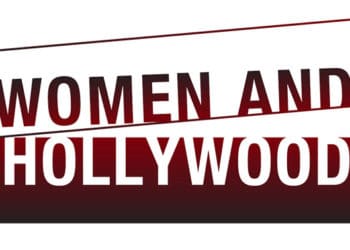
Below is an open letter that I wrote in 2009 to get my first feature film off the ground. The letter went viral at the time, and resulted in my raising enough to direct my first film:
June 2009
Dear friend and ally,
On June 30th this year I’ll be turning 38. It was twenty years ago that I used to sneak out of school in order to write my first screenplay. In lieu of a literary criticism paper, I handed in a 260-page epic screenplay about the childhood and adolescence of John Lennon. He was my hero at the time because no matter what people thought about him, he knew he was good. I received an “F” on my term paper, but my English teacher took me aside during lunch and said: “I had to fail you, but I know you’ll win no matter what we do to you in school.”
When people learn that I’m a filmmaker, they often ask me some version of: “Do you want to be a star? You want to be Stephen Spielberg?” With practice, I got good at answering:
“No, I don’t work this hard to be a star. I’ve put in thousands of hours of unpaid labor because I care deeply about the artwork that I create. The stories I tell, and how I tell them, really matter to me. I think my work will make a difference to people.”
Twenty years later, I sit to write this letter, facing two shelves filled with over twenty screenplays. Modesty aside, I would need many pages to recount even a portion of the positive feedback that I’ve received over the years; the enthusiastic phone calls, the awards, the requests for meetings. A judge at the IFP Market told me that of the 150 scripts she read that summer, mine ranked among her top three favorites; another judge resigned in protest after the jury didn’t select my script as one of their five finalists; a manager called to say that he couldn’t get my script out of his head; an agent told me that she rarely ever laughs and that my script had her laughing out loud; a producer of hit movies implored me not to revise my script because it was perfect. When I began to direct short projects, the response was the same: “Shorts this perfect are so rare, I just want to weep” was a comment I received from a festival director.
And yet, the past years were marked with tears and heartaches. One enthusiastic response after another would lead me to hope and end with a bout of weeping on my husband’s shoulder. No matter how familiar and by now, routine, the disappointments would be, the tears would come each time. And after a good cry, or two, or several, I would get up, wipe my knees, and keep going.
I often tell other filmmakers who lose heart: when it comes to pass letters, you’re in great company, from Van Gogh to the Beatles to Stephen King to J.K. Rowlings.
But the million dollar question remains, as one of my writing students asked after reading two of my scripts: “Why are these scripts not made? What better scripts could people possibly be reading?”
After years of learning, practicing, and teaching, after hundreds of hour devoted to each script, after years of query letters, phone calls, meetings, film markets, panels, classes, LA trips, networking, more networking, even more networking, my scripts – those ones that this reader liked better than the 150 scripts she read that summer – those scripts sit on a shelf. After years of trying and falling and getting up and trying, something finally dawned on me: maybe I’m not the most unlucky bastard that ever lived. Maybe I’m female.
I have an Iranian friend living in NY who recently returned from her trip back home. She told me that it was easier to be a woman in Iran because there is no pretense there about sexism. It’s overt. It’s policy. It’s “the way things are”. What’s hard about being in the US, she said, is that women are disempowered by the myth that western women are liberated. The glass ceiling hurts every time we bash our heads against it but it’s entirely invisible. Have you ever run smack into a pane of glass?
Little hints of this invisible blockade pop up on occasion: a male student of mine with a fraction of my experience gets hired to direct a feature film; the manager who couldn’t get my script out of his head tells me that he can’t sell the script because the lead is a girl; an executive won’t read my road movie because, according to this executive, “women on the road has already been done.” One producer urged me to pass my script to another director since I haven’t directed a feature before; this conversation took place while her husband was line-producing a $7M movie starring Bruce Willis, directed by a first-time male director.
Overall, however, society’s message to me as a woman born in 1971 is that sexism is a thing of the past. But if I’m ever so liberated, why is it that no matter which direction I turn, I walk into a glass pane and land on my ass? The answer, I’m convinced, is not out there; it’s inside myself.
I teach screenwriting and consistently notice the different regard that I feel for my male and female students. No matter how “enlightened” I think I am, I find myself having higher expectations of the guys. I just assume that they have more experience, more confidence, more intelligence…? I’ve recently noticed that when I receive quality work from a woman, I feel a sense of surprise. When I see amateur work from a man, I think “hmm… for some reason I had him pegged as an experienced writer.” For some reason.
So if I, a woman filmmaker, the liberated one who’s not afraid to use the word “feminism” in a sentence, if I myself carry misinformation about women that has me question our competence and intelligence, what thoughts do other people carry? What “feelings”, stemming from centuries of fear and prejudice, and mistaken for intuition, dictate their decisions? What do the well-intended producers, executives, agents, managers and investors, feel when my script comes across their desk? With what concern do they thumb through my script, the one with the name “Ela” on it, the one with a female in the leading role?
If they’re anything like me, enlightened and all, they glance at the script and expect amateur work. If they get as far as reading a few pages, they’re pleasantly surprised that I can write. If they get as far as reading it entirely, if they get past the fact that the lead is female (unlikely), if they get far enough to even consider packaging or selling or producing my film as an even remote possibility – and I’m happy to say many have gotten that far – then they have to muster up the confidence that I, a first time female director, could complete a meaningful, powerful and – profitable – movie. Beware of glass panes.
I once had a notable producer pick up my work and tell me that mine was the strongest script on their slate. The higher-up in the company, however, while working to attach “bankable names” (ie. movie stars) to their other projects, refused to package my script. “If an investor takes interest in it without us packaging it, then we’ll produce it,” they explained. We parted ways.
There is no petition to draft. There is no policy to fight. Yet, of the 250 top-grossing films in any given year, 6% are directed by women; of the 50 top-grossing movies each year, roughly 5 star or focus on women. In 80 years of Oscar history, with roughly 250 directors receiving a nomination for best director, 3 nominations went to female directors. No woman director ever received an Oscar.
It would be so much easier if someone would just flat out say it: “You’re not a director. You’re a girl.”
Unfortunately, there are no bad guys to blame. Men are good and caring people; my own husband is my greatest ally in the world. Women are intelligent and powerful. But all of us carry the scars of centuries of misinformation, and we all make decisions, often without awareness, that stem from a sordid history.
So now what? Given the reality in which I exist, what do I need to do to move forward? Statistically, I have twenty times less of a chance to get a film made than my male colleagues. But this doesn’t mean that my goal is impossible, it just means that I have to work twenty times harder. So I will.
I know my films will get made. I know that I’m a wise investment, that my films will have wide appeal, and dare I say: wide impact. But how do I get my films to their rightful owners – to their audience?
——
[I’m deleting the portion of this letter in which I asked every human being I’ve ever met to donate $100. But this plea did help me raise $40K, which was the budget of my first film.]
I ended the letter with this:
——
Dear friend and ally, I sat down at 8am yesterday morning to write this letter. I was terrified. Even though I’m a writer, I don’t have the words to capture what this really means to me. How do I sum up my life’s work in a letter? It’s what I’ve devoted every waking (and sleeping) hour to in one form or another from the time I began this journey.
I wish I could find a poetic and irresistible way of saying it, but truth be told, it’s simple: even a minimal donation will make waves. It will change my life and have a ripple effect beyond that. It will be the catalyst to intelligent and inspiring films – ones made by a woman.
Please don’t assume that someone else will pick up the slack. Given the small amount that I’m asking for, it will take every person who receives this letter to respond favorably. This is one time in our relationship with each other that I ask you not to procrastinate, not to be apathetic, not to assume that you can’t make a difference, not to fall for my façade of “the successful artist” when in truth, I’m in need of help.
I dare you to care. I will think of you and remember you when I see your name on the list of donors. And if I haven’t met you yet, I will want to. It is now 8am the following the morning. It took me all day to draft this letter, to write and re-write it, giving it my all to try and find the words that might reach you.
June 30th of this year will mark twenty years from the time I wrote my first screenplay. I hope to celebrate it on July 1st by walking into my office and beginning the work that I was born to do.
With love and gratitude, Ela Thier

